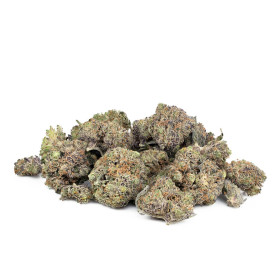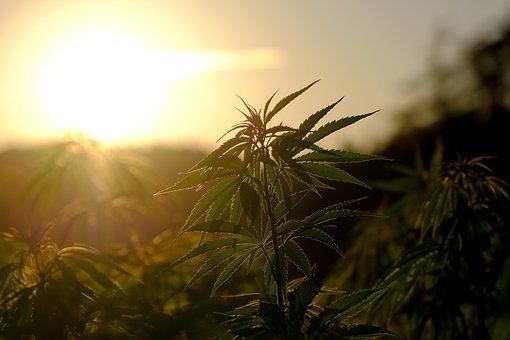Marijuana
Diabetes Prevention: How Cannabis Stabilizes Blood Sugar Levels
Cannabis has become legal in various forms for the past few years, depending on where you live. With the growing prevalence of the plant, researchers have been analyzing its various health benefits. Among other questions, scientists are exploring the significance of cannabis for diabetes.
Cannabis has shown promising potential to help patients suffering from type one and two diabetes. If you have diabetes or are prediabetic, you might be considering marijuana’s potential treatment benefits.
The research is still ongoing to determine the exact effects of the plant on people with diabetes. However, part of it has to do with the interaction of cannabis and blood sugar.
Read on to learn how cannabis impacts blood glucose and serum insulin levels. We’ll also discuss its effects on blood sugar, appetite, and weight management.

How Does Cannabis Affect Fasting Blood Glucose and Fasting Insulin, Insulin Resistance, and Weight Gain?
Some studies have found a positive correlation between metabolic processes and cannabis use. Others have found lower rates of obesity and type two diabetes among chronic marijuana users.
A study conducted in 2013 showed that 16% of participants had lower fasting insulin levels, and 17% had lower insulin resistance. Plus, the study participants who used marijuana had smaller waist sizes on average.
In most of the studies conducted, cannabis helped users lower their fasting blood glucose. It stabilized their weight and promoted less insulin resistance. Marijuana helps lower blood sugar levels in patients struggling to manage diabetes.
What About the Munchies?
If you know anything about smoking weed, you know that most people get the munchies. The munchies are an excessive craving for food while high.
The THC in the plant is responsible for both the high and excess hunger. When it enters the brain, the THC activates the CB1R receptor that triggers an increased need to eat.
Plus, the pro-opiomelanocortin (POMC) neurons become activated and release hunger-stimulating chemicals. That effect is why users suddenly crave mass amounts of food after getting high.
Obesity is a concern for many people with diabetes, so the effect of the ‘munchies’ can be problematic. However, recent research suggests that cannabis users have lower BMI and rates of obesity. One study speculates the reason is that consuming cannabis leads to reduced energy storage and increased metabolic rates.
Cannabis Benefits for Diabetes
If you’ve been struggling with irregular blood sugar levels, you might be wondering about the cannabis blood sugar correlation. People with diabetes can consider marijuana as a method for helping their condition. They can reap several potential benefits, including:
- Lowered arterial inflammation
- Reduced neuropathic pain
- Blood vessels remaining open
- Improved blood circulation
- Reduced blood pressure
- Relief from muscle cramps
- Relief from gastrointestinal pain
Also, medical marijuana can help reduce many of the common causes of type two diabetes. One study showed that THC use among people with type 2 diabetes not taking insulin experienced:
- Reduced fasting blood glucose
- Improved insulin production
- Increased blood sugar regulation

Below, we discuss these many benefits in detail. We dive into the why and how of cannabis benefits for diabetes treatment.
1. Smaller Waist Sizes = Lower Risk of Diabetes
Two of the most significant risk factors for type two diabetes are being overweight and having a wider waist size. Studies have shown that marijuana users are less likely to suffer from insulin resistance. There is an inverse relationship between pot and diabetes. The more people smoke, the less likely they are to be susceptible to diabetes.
2. Increased Insulin Sensitivity
One of the main symptoms of type two diabetes is the body’s resistance to insulin. Some research indicates that marijuana might increase insulin sensitivity in users. A 2016 study indicated that a specific strain of cannabinoid THC helped patients drop their fasting blood glucose. It also improved insulin production and raised their adiponectin (a protein key in regulating blood sugar).
3. Lower Inflammation
Cannabis has natural anti-inflammatory properties. It could benefit users with type one or two diabetes. The inflammation of body parts helps exacerbate the progression of diabetes. CBD has chemical properties that stop inflammation and help to relax the body.
4. Protects Against Retinopathy
One of the side effects of untreated diabetes is vision loss due to retinopathy. Retinopathy is damage to the blood vessels in the retina, and it results from diabetes. The damage causes the vessels to leak fluid and distort the vision. Another study has shown that CBD could help protect individuals from diabetic retinopathy.
5. Helps Individuals Manage Neuropathy Pain
Neuropathy is a form of nerve damage that occurs most often in the feet and legs. Sometimes, the condition can develop in other parts of the body. One of the side effects of diabetes is the development of neuropathic pain. Some research points to high levels of THC, helping patients relieve their nerve pain.
Does Cannabis Lower Blood Sugar?
Though marijuana has many benefits for diabetes, there are some things about which people should be cautious. Included in that list is the answer to the question: Does cannabis lower blood sugar? Unfortunately, the research is conflicting.
- Increased Blood Sugar: Because of the munchies, people could experience a spike in their blood sugar level. The increase in appetite could lead to binge eating. If people with diabetes experience munchies and consume mass amounts of carbs, it could be dangerous.
- Lowered Blood Sugar: On the flip side, some individuals experience lower blood sugar levels on cannabis. Users could experience the symptoms of lower blood sugar like shaking, sweating, rapid heartbeat, and confusion. The confusion could lead to a health emergency.
The research is still underway on cannabis blood sugar correlations. Because of this, make sure to ask your doctor before using cannabis to regulate blood sugar levels.
Diabetics and Marijuana: Is the Plant Enough to Stabilize Blood Sugar Levels Alone?
When it comes to diabetics and marijuana, the research presents promising findings for cannabis and blood sugar. If you’re looking for tools that can help you manage your condition in the long-term, consider utilizing cannabis. But always, please seek help from a medical professional before starting any new treatments.















